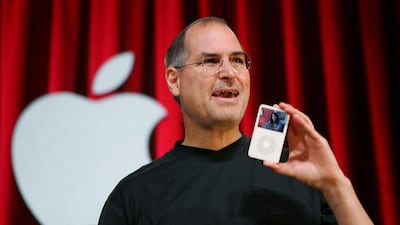The legend of Steve Jobs, futurist, visionary, design aesthete – and crucially, the development overseer of the iMac, iPod, iPad and iPhone – continues to sprout mightily. A thicket of charming unknown stories is to be found in a new book, Being Steve Jobs, which is odd considering Apple’s mega-star died in 2011 and his authorised biography painted a somewhat different picture of the man. The retelling seeks to change the perception that Jobs was an egomaniacal autocrat. Instead, we learn that he hated firing people, felt guilty if he shouted at them and was, first and foremost, a family man.
Steve Jobs’s legacy is about more than just one man but about an industry as a whole. Along with Microsoft founder Bill Gates, Jobs’s achievements will be subject to endless rewriting, sometimes to coincide with industry trends and sometimes to demonstrate the human touch behind the technology. After all, Jobs’s life and work is part of the international mythology of the internet age.

